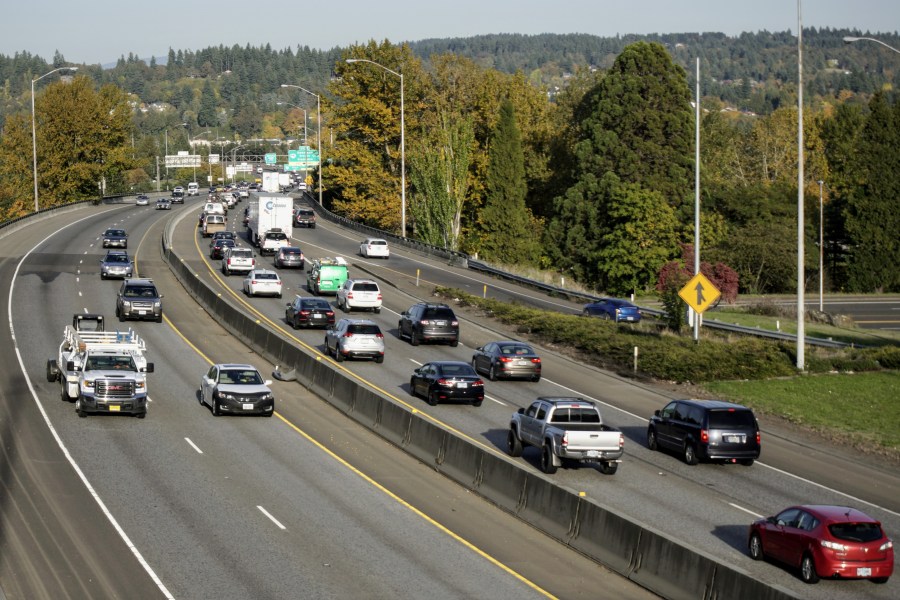PORTLAND, Ore. (KOIN) – After initially defending the level of community input given to its proposed I-205 tolling system, the Oregon Department of Transportation responded to the multi-year delay that Gov. Tina Kotek recently placed on the project by acknowledging that affected citizens still felt unheard.
ODOT Director Kris Strickler issued a statement on May 2 following Kotek’s executive order to implement delays similar to those mentioned in Senate Bill 933. The newly imposed regulations prohibit the Oregon Transportation Commission from establishing tolls on I-205 or I-5 until 2026.
“During the last six years, ODOT has been working to stand up a toll program,” Strickler said. “Implementing a modern toll program, for the first time in Oregon, requires extensive planning and community engagement. We understand our drive to meet legislative intent to implement tolling quickly left communities and elected officials feeling unheard.”

The executive order also directs a special subcommittee to oversee ODOT’s ongoing tolling project with the intention of addressing concerns proposed by residents in the neighborhoods surrounding the proposed tollway, like public safety, traffic mitigation, pollution and economic impact.
Praising local lawmakers, Strickler said that ODOT intends to work with the subcommittee to address these issues moving forward.
“We look forward to the increased guidance and engagement with the new special subcommittee on transportation planning, and to working with Governor Kotek, the Oregon Legislature and communities across Oregon,” Strickler said. “Together, we can design a tolling program that achieves our shared goals of ensuring safety, mitigating congestion, supporting our economy, and reducing pollution.”
However, prior to the executive order, ODOT issued a statement to KOIN 6 News defending the agency’s efforts to include local community members in the planning process.
“Since 2020, ODOT has routinely met with Clackamas County and local cities to answer questions and make adjustments to our tolling analysis, mitigation projects and community outreach plans,” Strickler said. “We’ve been working with local communities in this area on making sure that the I-205 toll project accomplishes our shared goals of investing in local infrastructure and improving safety along this corridor.”
Local county and city leaders were publicly dissatisfied with ODOT’s attempts to address community concerns. These proposed solutions included the addition of turn lanes, more signals and roundabouts.
Prior to the delay, officials with Clackamas County sent ODOT 36 pages of input in response to the methodology and conclusions included in the state agency’s environmental assessment report, which sought approval from the Federal Highway Administration to implement the first phase of the tolling system in 2024.
With more time and analysis given to the project, state lawmakers who fought for the delay like Rep. Annessa Hartman (D-Gladstone) say that proper community input can begin: “Today, we are grateful that our voices are finally being heard loud and clear.”
